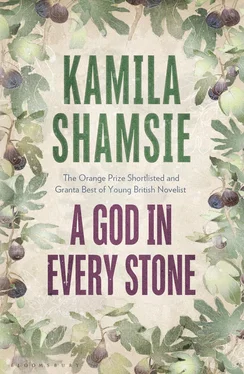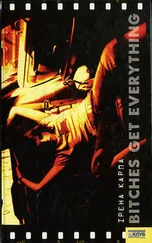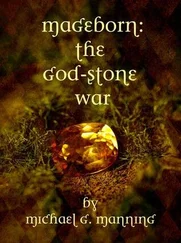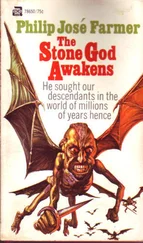Beneath the burqa she was sweating, and it was impossible to wipe the perspiration from her forehead. Back on the broad avenue she saw a woman in the bright clothes of a nomad call out to a man with a wide-brimmed basket on his head who squatted down and allowed her to pluck out the most appealing melons. A man walked along the pavement with a large cone of cloth beneath his arm; from the tapered base of the cone, green and blue iridescence emerged; from the wide mouth three beaked heads peered out. A hat of melons, a bouquet of peacocks. In another time she would have viewed these sights with delight at their Oriental colour. But the melon-seller was standing beneath the burnt remnants of a Union Jack; the peacock carrier was walking towards Kabuli Gate through which the armoured cars and troops had rushed in. This was the world she was now in. Or perhaps she’d been here all along, unseeing.
She looked down to the end of the street and there was Najeeb Gul’s brother, arms crossed, facing the gate leading into a police station.
Until the middle of the previous century river channels ran into the heart of Peshawar, willows and mulberry trees growing along their banks. Everywhere, headiness and shade, grown men of many nations cramming sweet purple fruit into their mouths as they walked along the Street of Storytellers. Now there was a masonry canal, carrying sewage and drain water, where the channels had once flowed. Why sigh over lost mulberries instead of giving thanks to the engineers who saved the city from floodwaters? said Qayyum and Najeeb threw his hands in the air in exasperation. Lala, why can’t you see that the past is beautiful?
Qayyum took a deep breath as he saw a man in khaddar walk out of the police station and come towards the gate. The past was not the beautiful place in which he still had a brother, he could not accept that. Any moment now Najeeb would be released from his cell, any moment now. But the Congresswalla merely took something out of the car parked inside the station grounds and turned and walked back in.
Qayyum had been standing outside the station ever since the Army withdrew the previous night, waiting for the policemen who had barricaded themselves inside to come out. For the first couple of hours he rattled the locked gate at regular intervals before it occurred to him that it would only terrify the policemen further. Through the night men he knew from Congress or Khilafat or the Khudai Khidmatgar urged him to join them in taking over policing duties for the city — there was a rumour the British had sent word to trans-border raiders to attack the Walled City so that the Peshawaris would beg the Army to return and save them — but he only said, I’ll join you when my brother comes out, and they left him alone. An hour or more ago a delegation of Congress and Khilafat men had arrived at the police-thana. One of them scaled the walls, and opened the gate from inside, picking the lock with ease.
— No, stay here, the lawyer Abdul Hakim who was part of the delegation had said. If your brother is there we’ll get him out.
The scent of melons caught Qayyum by surprise — it was a fruit-seller walking past — and he wished he were back in the orchards where he understood the world.
— Mr Gul?
He looked round, startled to hear an Englishwoman’s voice, and startled further to find it coming from beneath a burqa. The voice identified itself as Miss Spencer, and he gestured sharply to her to keep her voice down. A little distance away two men were leaning against a tree, reading the newspaper Sarhad which had published a list of over a hundred names of the dead this morning.
— Please go back to the Cantonment.
— I’m more sorry than I can say about what happened here.
— You don’t know what happened here.
The door to the thana opened again and this time the entire Congress and Khilafat delegation came out, and behind them men who Qayyum hadn’t seen go in — the prisoners, in khaddar and red shirts, so great a number of men it was impossible to make out each face. They opened the prison gates and stepped into the street and a great roar went up around the Walled City: Inqilaab Zindabad!
— Najeeb! Qayyum shouted over the roar. Najeeb!
A hand on his shoulder, he spun, his heart so light with relief it might fly out of his chest. But it was Abdul Hakim, shaking his head.
— I’m sorry, the lawyer said. I’m so sorry, he’s not there.
The prisoners streamed past him, embracing men on the street. Inqilaab Zindabad! Qayyum held out his arm to steady himself against something and what he touched was cloth, a shoulder beneath which didn’t flinch.
— Najeeb? the Englishwoman said, her voice carrying barely any sound. Please, not the lorries?
— No, Qayyum said, no. There was no one in a frock-coat. Someone would have seen him in his frock-coat.
The sentence gave him some strength and he repeated it, removing his hand from the woman’s shoulder.
— Of course, she said. I’m sorry, I shouldn’t have said that.
— You know about the lorries?
— Yes. But, Najeeb. Where is Najeeb?
— Do you know where the lorries went? Where they took the bodies?
— No. If I did I’d say so, of course I would. That poor woman, I can’t imagine what it must be like. Where is Najeeb?
— Which poor woman?
— There was a woman at the Museum yesterday. You must have seen her when she came in. She said her sister-in-law had been taken away in a lorry.
Now he remembered the figure with her head covered, the height of her.
— Did she have green eyes? he said.
— Yes. You know her?
— Why did she come to the Museum? Her sister-in-law had just died. The gates of the Walled City were closed. Why, how would she be at the Museum?
— I don’t know.
He looked down the Street of Storytellers towards the balcony on which deer chased each other between borders of roses. Without a word to each other both he and the Englishwoman in a burqa started to walk towards it.
It was impossible to keep pace with the Pathan without walking like an Englishwoman. Viv allowed him to stride ahead of her, surprised when he stopped near the carpet-seller’s door to wait for her.
— I can’t go in and ask to see a woman, he explained, knocking on the door. A young servant boy answered and said the family wasn’t back from Kohat yet, all mourners were being asked to come back the next day when they’d all be here. They aren’t all in Kohat, Mr Gul said, and the boy replied that his sahib had gone to Shahji-ki-Dheri.
— Shahji-ki-Dheri?
The boy’s expression grew alarmed at the sound of Viv’s accent, but he answered all the same.
— Yes, he’s gone there for a grave. Even if there isn’t a body there should be a grave.
He held up his fist which was wrapped in a gauzy blue dupatta, a faint scent of coconut oil rising off it, his eyes filling with tears.
What have we done here?
Mr Gul was looking at her and she knew she had to be the one to ask for the green-eyed woman.
— Tell your begum-sahib I’m the Englishwoman she spoke to about the lorries.
— Come with me, the boy responded. Come upstairs.
They followed him into an enclosed courtyard of coloured glass windows and delicate lattice woodwork, and from there up one of the corner stairways, and into a cavernous room she’d been in years earlier as a customer. The boy opened the shutters, and left the room. Along the length of one wall rolled-up carpets were arranged by height like schoolchildren. She remembered the kindly, bearded carpet-seller showing her a rug which had seemed no more than ordinary. I don’t think that’s quite what I had in mind, she’d said. He’d smiled as if he had wanted such a response and with a single flick of his wrist, as though turning the page of an illuminated manuscript, flipped over the rug to reveal sharply delineated arabesques of reds and blues, deep as blood and twilight. Viv’s delight was as much an appreciation of the salesmanship as the rug itself. Now the finely knotted arabesques were laid out in her study in Bloomsbury.
Читать дальше












